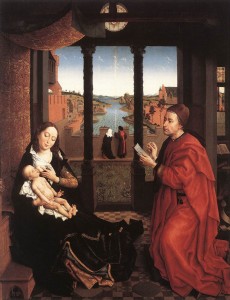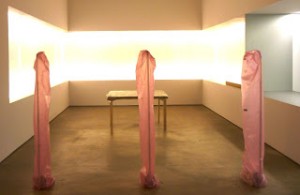(That’s ‘Crisis’, as in the national charity for single homeless people, not a statement of doom for the discipline!)
Two weeks of term under our belts, and a sense that everyone’s starting to settle in to the new academic year… I do hope that you’ve been taking up the brilliant offer I advertised in my last blog, of free national art passes for all History of Art students at Birkbeck! This is open to every student in the department, whether on the Certificate, Graduate Certificate or MPhil/PhD programmes, or on any of our BAs or MAs. If you haven’t as yet, then please do follow the link to sign up before the deadline of 23rd October. The discounts which you’ll be able to get on exhibition tickets, together with the free entry to over 200 charging museums and galleries, really are too good to miss! Also, don’t forget about the perk which Professor Lynn Nead so kindly arranged for Birkbeck students keen to see her exhibition on The Fallen Woman at the Foundling Museum. Half-price entry to the show, and a 30% discount in the café!
It may still be early in the Autumn term, but there’s already lots going on. Two events are coming up later this month, which will be of interest to many of you….
– my colleagues in what we always refer to as ‘the early period’ run the Murray seminar on Medieval and Renaissance Art. This seminar series is one of a number of activities supported by an important Bequest, established in memory of Professor Peter Murray. The first speaker in the series this term is, I’m delighted to say, Dr. Robert Maniura – so, if you missed hearing him give the opening paper at his conference on ‘Frontiers of Fifteenth-Century Art’, do take this opportunity to hear him speak about his research. Robert will be considering Rogier van der Weyden’s famous image of St Luke drawing the Virgin Mary in his paper, entitled ‘Rogier van der Weyden, Portraiture and Flesh’, in room 112 in Gordon Square, at 5pm on Thursday 22nd October.
Interpretations of this picture often concentrate on its significance for painters, but tend to overlook the familiarity which artists’ clients may have had with the artistic practices shown. Robert’s paper will explore the implications of this for our understanding of the portraiture of the period.
– other colleagues, from the department and across the College, who specialise in the field of architecture, co-organise the Architecture, Space and Society Research Centre. They have organised a one-day colloquium on the topic of ‘Architecture in Time: The Temporal Conditions of Design’ (Friday 23rd October 2015, 10am-5pm). Do follow this link to find out more about and register for the day, which will bring time to the fore as a creative force in design. The full price is £35, but all students are offered a special rate of £15.
I shall end this blog by posting a piece which has kindly been written by Gary Haines, one of our many dynamic PhD students, who works with Dr. Suzannah Biernoff on representations of the blinded British soldier of the First World War. This is an account of the work which the History of Art department has been doing with Crisis, led by Gary and Dr. Leslie Topp.
‘Birkbeck at Crisis’, by Gary Haines
‘Recently I found myself talking to a group of strangers about ‘What is Art?’. This discussion went on for two hours. This was not a side effect of studying History of Art at PhD level, but part of a series of workshops I am lucky enough to be involved with, working in tandem with Crisis, the charity for single homeless people. The aim of these workshops is to encourage others to go to university by taking the university to them.
Back in July 2013, Birkbeck’s Department of History of Art and the widening access team ran an ‘Art Cafe’ at the Crisis Skylight centre for four days. This was followed by a series of information sessions on taking the first steps into university study in the History of Art. Four Crisis members enrolled in the Certificate in History of Art in September 2013 and January 2014, due to these sessions.
In December 2013, Dr. Leslie Topp encouraged me to become involved and, the following May, we launched ‘Final Fridays at Crisis’. This course was run on the last Friday of the month at the Crisis Skylight centre in Commercial Street, throughout May to August. The idea of the course was to bring university style lectures/seminars directly to Crisis members, hopefully breaking down a few barriers along the way.
‘Final Fridays at Crisis’ introduced Crisis members to subjects such as Outsider Art, Architectural History, Art and the Market and the History of the East End. It also discussed study skills, how to deal with university admin, funding and how to take that daunting first step into further education.
The classes were well attended, lots of questions were asked and many members went away saying they wanted to come back again. I also found out recently that one of the members who attended is off to study textile design at university this year.
Some months ago, I was once again approached to undertake some workshops for Crisis members. This time, it was for their ‘Art in Crisis’ festival, which showcases the artistic talents of their members.
Then, last month, I co-ordinated a series of workshops and lectures for Crisis members, under the heading ‘Birkbeck at Crisis’. I spoke on a number of subjects, including ‘What is Art’ and ‘An intro to Abstract Art’. A discussion on working in or studying art was also arranged, and Katie Brookes, Vikki Jessop and Yvonne Ng all gave great talks. These courses were received well by the members and I hope to return to Crisis again to follow them up.
I feel that it is vitally important that we remember that it is possible to learn outside the lecture room, and how daunting the thought of going to university can be for some people.
I am passionate about university as a route of progression as I took this step after nearly ten years out of work. If the fates had rolled the dice a different way I could easily have been a member of Crisis.
The Crisis members come from a wide variety of backgrounds, some with little education, others with a lot. There is no such thing as a ‘homeless person’. The idea of these workshops was to remind us of that, as well as to remind them. Some of the most challenging academic discussions I have had have taken place in these workshops, with these men and women.
Further education changed me and shaped me. It can literally change your life. We know that, but we need to tell more people that. And we need to shout it even louder these days.’



